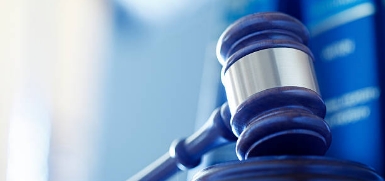1.0 INTRODUCTION
The Universal Declaration of Human Rights (UDHR) ratified in 1948 after World War II, laid the foundation of international human rights law. It was the first universal statement on the basic principles of inalienable human rights which created a common standard of achievement for all people and all nations. These principles are echoed in the laws of more than ninety countries around the world. The sad reality is that no historical period than this has witnessed a greater violation of these rights.
We live in an age where the government plays a chess of breaches, with the people as pawns. New York has mandated its state employees to get vaccinated on a weekly basis from September 6, 2021. The air in Saudi Arabia is also thick with the gloomy clouds of ‘no jab, no job’.
The controversy over vaccines is nothing new. When Edward Jenner created the first vaccination against smallpox in 1796, it was initially seen as a miraculous solution before it began to attract opponents. Now, with the COVID-19 pandemic, the controversy over vaccines seems as fresh as it was when Jenner discovered his answer to smallpox. However, the fact that these objections have lasted over two centuries does not mean that they do not deserve a hearing in our present world.
2.0 INFORMED CONSENT: VACCINATION CHOICE AS A HUMAN RIGHT
Article 6 of the Universal Declaration on Bioethics and Human Rights provides that any preventive, diagnostic and therapeutic medical intervention is only to be carried out with the prior, free and informed consent of the person concerned. The consent may be withdrawn by the person concerned at any time, and for any reason.
Arguments have risen as to whether minors should be left to mandatory vaccination, but the Convention on Human Rights and Biomedicine provides that if a person is a minor, or incapable of giving consent, a person with parental responsibility should give it.
3.0 COVID-19 VACCINE: A BREACH OF HUMAN RIGHTS
The introduction of mandatory vaccination tramples on several constitutional rights and grinds them to dust.
3.1 Right to freedom of thought, conscience and religion
Article 6 of the Human Rights Act recognizes that people can believe and think what they like. It is okay for people to believe that the COVID-19 vaccine is not the right thing for them. It is okay for them to say no.
Voltaire, a renown poet, once said, ‘think for yourself, and let others enjoy the privilege of doing the same’. Unfortunately, when the government spins an umbrella of thoughts, we are robbed of the privilege of doing the same.
3.2 Right to be free from discrimination
Veronica Arroyo, a foremost policy associate, asserted that, ‘COVID-19 is a disease that isolates and disproportionately affects those already at risk. A COVID-19 vaccine ‘passport’ that does the same is no solution to combating this global pandemic’ (AccessNow, 2021). When vaccine certificates and passports form the basis of access or denial from international travel, or in the case of Denmark, access to domestic services, then a human right is being violated.
3.2 Right to private and family life, home and correspondence
Article 8 of the Human Rights Act gives the right to personal autonomy. Autonomy means being able to make decisions about your body and life, including ‘unwise decisions’. The COVID-19 vaccine provides a platform for intrusion into a person’s life and body. What greater breach of human rights could there be?
4.0 THE PARADOX: RIGHT TO LIFE
It is true that the Human Rights law obligates governments to take reasonable steps to protect life, and prevent threats to public health. It also recognizes that in the context of serious public health threats, restrictions on some rights can be justified. However, these restrictions must be consistent with the test set up by international human rights courts. A test of three questions, which proponents of the COVID-19 vaccine have been unable to answer.
4.1 Is it lawful?
No. There is currently no law that allows for compulsory vaccinations. Section 45E of the Health and Social Act 2008 which gives governments the power to make regulations to prevent the spread of an infection, explicitly says that this power does not allow for mandatory vaccination.
4.2 Is it proportionate?
Proportionality means identifying the various options available and choosing the one which is least restrictive to achieve the legitimate aim. Public health is a legitimate goal, but according to an article published by the Centers for Disease Control and Prevention on May 13, 2021, only people who have underlying medical conditions are likely to die from COVID-19. Since these people are restricted to a certain age and number, the risk posed to the public is minimal and improbable. COVID-19 vaccine is too restrictive for a disease that mainly targets aged people with underlying medical conditions.
4.3 Is it necessary?
Necessity requires that mandatory measures must meet a pressing social need. A report drawn from the COVID-19 Resource Center on July 14, 2021, showed that out of 149 individuals who were infected with COVID-19, 87 individuals who were not vaccinated, recovered. The report said that ‘they maintained most of their plasma antibodies against the virus.. and their plasma had neutralizing activity against the virus’ (JAMA, 2021).
More than half of these individuals were fully healed without the vaccine. This means that the vaccine is not strictly necessary. We can do without it.
5.0 CONCLUSION
The COVID-19 pandemic has provided a rare lens for the study of the ways in which citizens’ preferences matter in policy making. To approve mandatory vaccination is to cling to falsehood, to hold the truth of the law in contempt. And when the truth is opposed for a long time, we are left with nothing, but consequences.
BIBLIOGRAPHY
- Inter-American Court of Human Rights, June 23, 2005. Preliminary objections, merits, reparations and costs.
- Human Rights Watch, March 19, 2020. Human rights dimensions of COVID-19 response.







